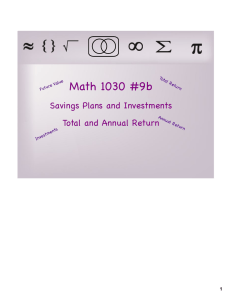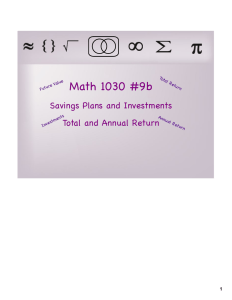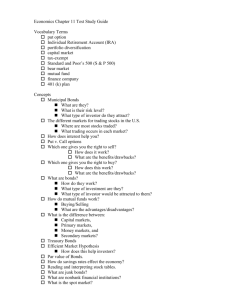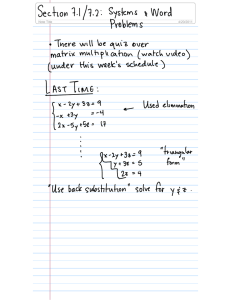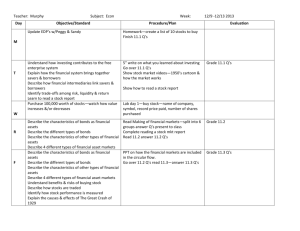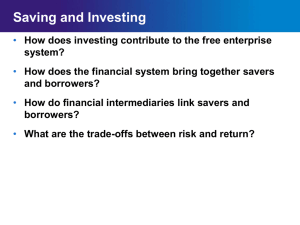Financial Markets
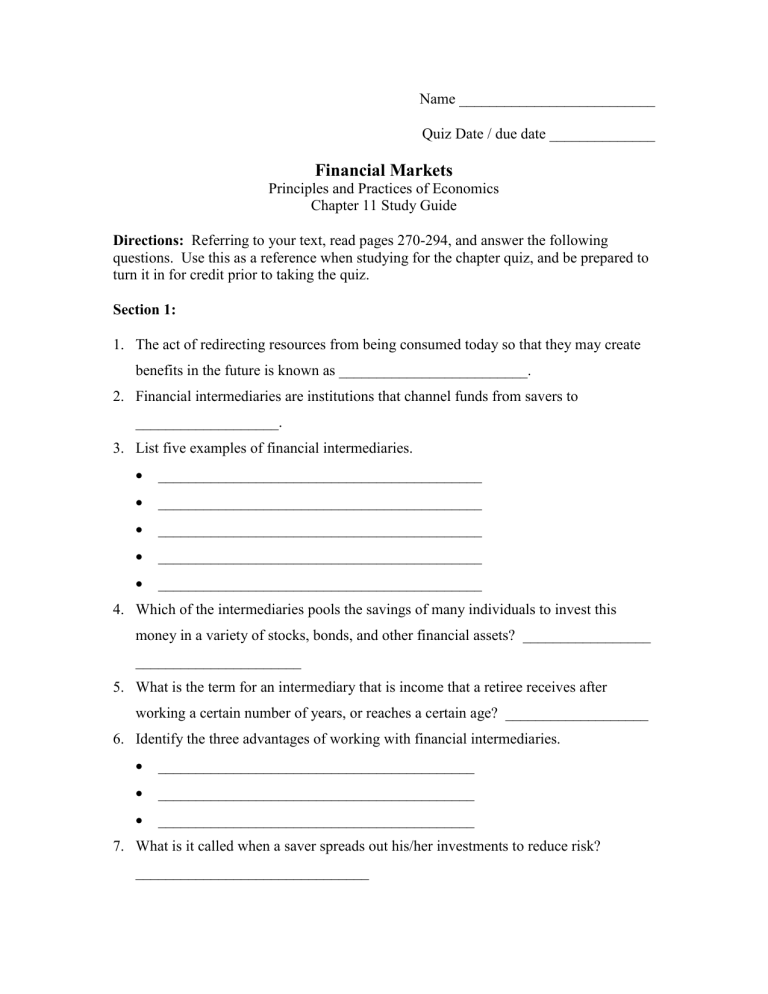
Name __________________________
Quiz Date / due date ______________
Financial Markets
Principles and Practices of Economics
Chapter 11 Study Guide
Directions: Referring to your text, read pages 270-294, and answer the following questions. Use this as a reference when studying for the chapter quiz, and be prepared to turn it in for credit prior to taking the quiz.
Section 1:
1.
The act of redirecting resources from being consumed today so that they may create benefits in the future is known as _________________________.
2.
Financial intermediaries are institutions that channel funds from savers to
___________________.
3.
List five examples of financial intermediaries.
___________________________________________
___________________________________________
___________________________________________
___________________________________________
___________________________________________
4.
Which of the intermediaries pools the savings of many individuals to invest this money in a variety of stocks, bonds, and other financial assets? _________________
______________________
5.
What is the term for an intermediary that is income that a retiree receives after working a certain number of years, or reaches a certain age? ___________________
6.
Identify the three advantages of working with financial intermediaries.
__________________________________________
__________________________________________
__________________________________________
7.
What is it called when a saver spreads out his/her investments to reduce risk?
_______________________________
8.
A collection of financial assets is called a _______________________.
9.
An investment report is called a ___________________________.
10.
The ease with which people can convert their assets into cash is known as
______________________.
11.
The money the investor receives above and beyond the sum of money initially invested is the ______________________.
12.
When comparing risk to return, investors must consider the degree of risk involved in an investment, and decide what return they would require to make up for that
_______________.
Section 2:
13.
Certificates (I.O.U.'s) sold by a company or government to finance projects or expansion are known as _____________________.
14.
The interest rate that the bond issuer will pay the bondholder is known as the
_______________ _______________.
15.
The time at which the payment to the bondholder is due is the __________________.
16.
The face value or principal of the bond is known as the __________ _____________.
17.
The annual rate of return on a bond if it were held to maturity is the _____________.
18.
Once a bond is sold, will the coupon rate for that bond be able to go up or down? ___
19.
What types of things does the government do with the money it raises from selling
Savings Bonds?
20.
Are Savings Bonds sold for par value? _______
21.
State and local bonds are known as _________________________ bonds.
22.
For what dollar amounts are most corporate bonds sold? $_____________,
$_________, $______________
23.
The independent government agency that regulates financial markets and investment companies is the _________________ _____ _________________ ______________
24.
High-yield securities that have low ratings and a potentially high paying are known as
______________ bonds.
25.
In financial terms, a CD refers to what? __________________ ___ ______________
26.
Where does an investor get a CD? ____________________
27.
Does the FDIC insure money market mutual funds? __________
Section 3:
28.
Shares of ownership of a company are called _________________
29.
Parts of the company's profits are often paid to stockholders in the form of
_________________.
30.
When a stockholder sells his/her stock, the difference between the higher selling price and lower purchase price is called a ________________ _________________.
31.
Which type of stock is owned by voting owners of the company? ______________
32.
Which type of stockowner receives dividends before the common stock owners?
_______________
33.
What tends to happen after stocks split? ________________________
34.
Are stocks or bonds riskier? __________________
35.
Businesses that specialize in trading stocks are __________________ firms
36.
What are the two major stock exchanges in the U.S.?
37.
In spite of the stock exchanges, the majority of stock is sold how? ____________
___________ _____________________
38.
When the stock market rises steadily over a period of time, it is known as a
______________ market.
39.
When the stock market falls for a period of time, it is known as a _______________ market.
40.
The performance of the stock of 30 large companies that creates an index to show how the stock market is performing is known as the _____________ ____________
Industrial Average.
41.
Read the Chapter Summary carefully on page 294. Answer the Key Terms questions.
1.
______________________________ 6. __________________________
2.
3.
______________________________
4.
______________________________
______________________________
5.
______________________________
7. __________________________
8. __________________________
9. __________________________

